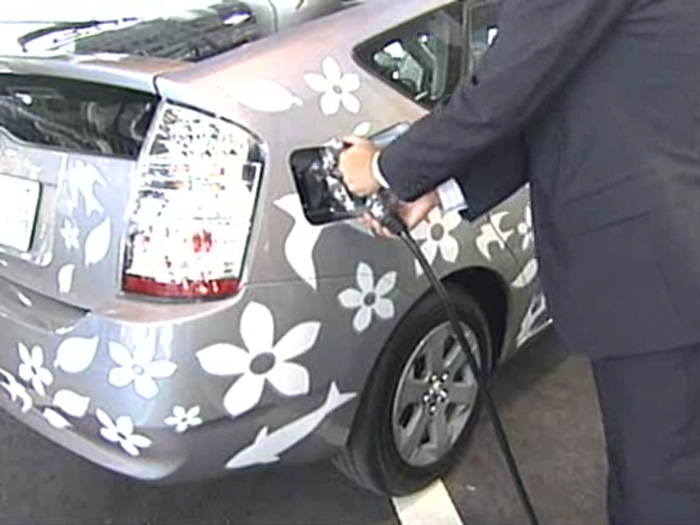Japan's first plug-in electric car hits roads
Petrol-electric hybrid juices up on domestic electricity

The old gag about electric cars needing to be plugged into the mains for a charge was never quite accurate, as most had to power up at special stations. However Toyota 's new Plug-in HV car is the first certified public-use vehicle that really can use household electricity.
Having just been approved to use public roads in Japan, eight of the hybrid cars are about to go on trial (Video link) there, with US and EU tests to follow. To get approval, Toyota had to use inefficient nickel-metal hydride batteries that yield only 13km of driving per charge. The point of not using more-efficient, but unapproved, lithium-ion batteries is to get the HV out on the roads to see how it fares in the real world.
Save the world, save the pennies
Aside from a reduction in the use of fossil fuels, one of the advantages of a car that can be plugged in at home is the ability to charge at night when electricity prices are generally lower. If saving the Earth doesn't get some people, the bottom line almost certainly will.
With a top speed of 100km/h under battery power, the HV should be ideal for city driving if Toyota's trial is successful in providing the government with enough data to rethink the regulatory red tape. Until then, the 1.5-litre petrol engine needed for anything more than a trip to the corner shop will have to suffice.
Get daily insight, inspiration and deals in your inbox
Sign up for breaking news, reviews, opinion, top tech deals, and more.
J Mark Lytle was an International Editor for TechRadar, based out of Tokyo, who now works as a Script Editor, Consultant at NHK, the Japan Broadcasting Corporation. Writer, multi-platform journalist, all-round editorial and PR consultant with many years' experience as a professional writer, their bylines include CNN, Snap Media and IDG.